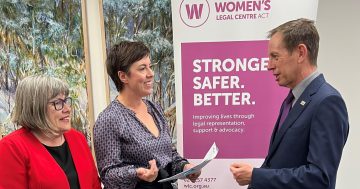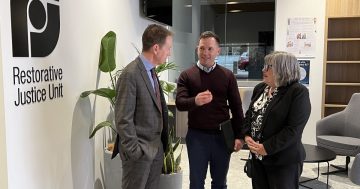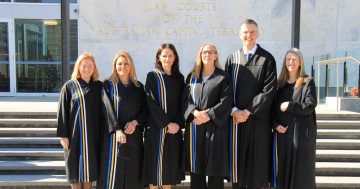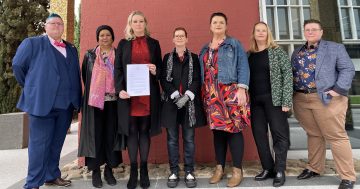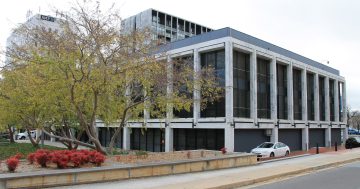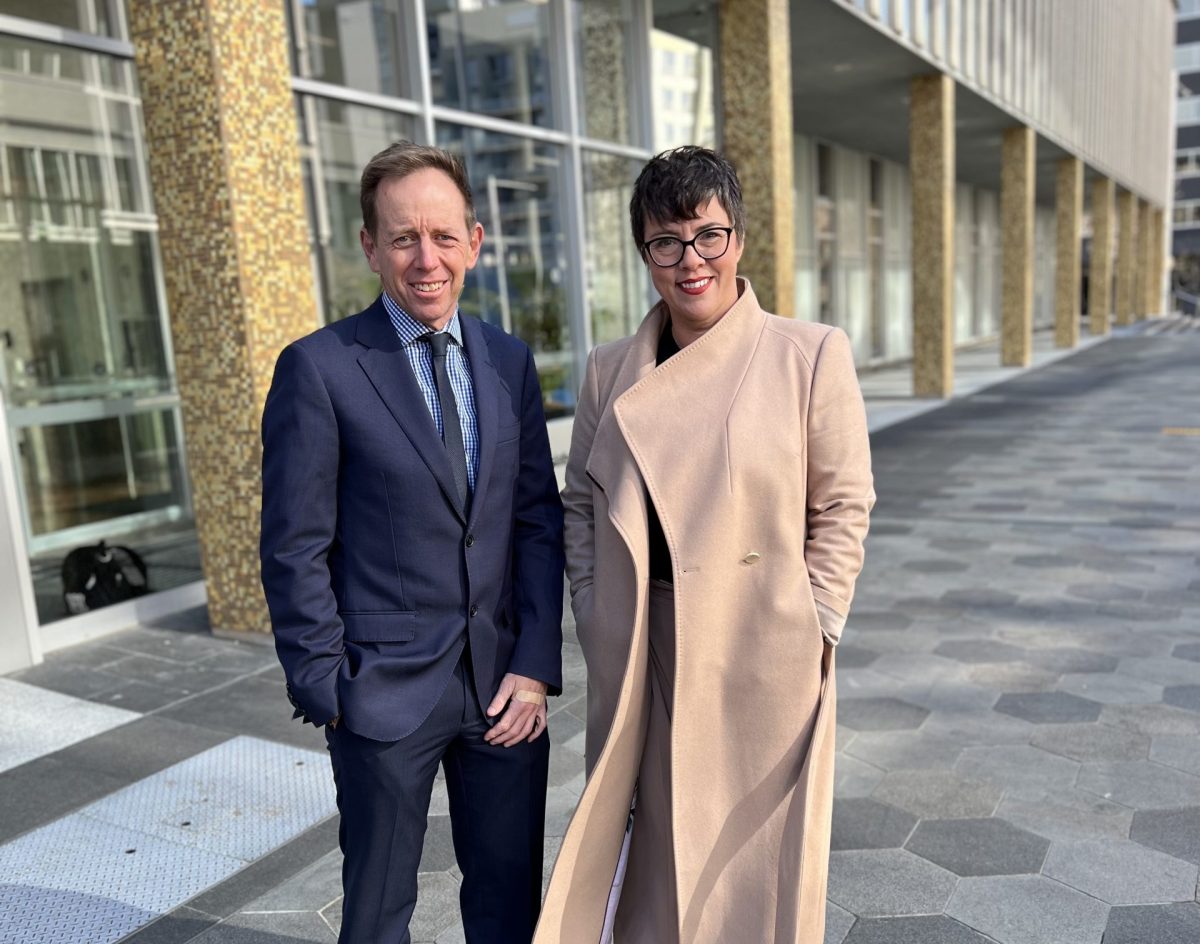
Attorney-General Shane Rattenbury and Women’s Legal Centre ACT CEO Elena Rosenman discuss the recent funding announcements. Photo: Supplied.
CONTENT WARNING: This article refers to sexual violence.
Confiscated proceeds of crime worth nearly $1 million will be spent on projects like supporting First Nations people accessing legal help, as well as supporting witnesses and complainants who go through the criminal justice system.
On Thursday (18 July), Attorney-General Shane Rattenbury announced funding for several projects from the Confiscated Assets Trust (CAT).
He said this funding ensures that proceeds of crime recovered under the Confiscation of Criminal Assets Act 2003 can be used productively to address the impact of crime on the community.
“This round of disbursements particularly focuses on access to justice and supporting victims of crime,” he said.
“You can see a theme here that is really about supporting those who are in the criminal justice system. They end up there as victims of crime. They don’t want to be there.
“They find it disempowering at times, and each of these areas of funding are very much designed to support them feel empowered, feel supported [and] feel like they have a voice in the process.”
Under this funding, $404,246 will be used to expand the Witness Assistance Scheme in the Office of the Director of Public Prosecutions (ODPP) to provide support and guidance to witnesses and complainants throughout the criminal justice process.
Mr Rattenbury said the scheme was about supporting victims of crime, making sure they are kept up to date and that they understand the decisions the prosecutor is taking. Victims often felt like they were “spectators”, he said.
Legal Aid ACT will receive $369,000 to employ three Aboriginal and Torres Strait Islander and Culturally and Linguistically Diverse client liaison officers. They will provide targeted support to vulnerable members of the community.
“This will allow us to better provide legal assistance by engaging liaison officers from these communities,” Legal Aid ACT CEO John Boersig said.
The placement of a senior prosecutor within the Sexual Assault and Child Abuse Team (SACAT) in the ODPP will be extended thanks to $107,000.
This will ensure there will be high-quality, pre-charge advice and support for the implementation of the new Threshold to Charge policy.
Lastly, the Woman’s Legal Centre will receive $30,000 to support the development and distribution of a Sexual Assault Legal Service handbook. This will provide essential information and resources to sexual assault survivors navigating the criminal justice system.
“The first step to making the criminal justice system more responsive to people who have been affected by sexual violence is to provide clear, accessible information about what to expect in the process,” Women’s Legal Centre ACT CEO Elena Rosenman said.
“Information, accompanied by specialist legal assistance and support, can be part of rebuilding community trust in the policing and criminal justice responses to sexual violence.”
Ms Rosenman said the criminal justice process could provide an avenue of redress for people affected by sexual violence.
“But what we find is that too often, people are making the decision about whether or not to engage with police or to continue to engage with the justice system proceedings based on insufficient advice,” she said.
“So the handbook that’s been funded will provide a really important bridge to the services that exist in the ACT. What’s important about funding resources like this one is that they will be independent, they will be accessible, and they will be private.”
Earlier this week, it was announced that $630,000 would be spent over two years from the CAT and the 2024-25 ACT Budget as part of measures to increase access to restorative justice processes in the ACT.
If this story has raised any concerns for you, 1800RESPECT, the national 24-hour sexual assault, family and domestic violence counselling line, can be contacted on 1800 737 732. Help and support are also available through the Canberra Rape Crisis Centre on 02 6247 2525, the Domestic Violence Crisis Service ACT 02 6280 0900, the Sexual Violence Legal Services on 6257 4377 and Lifeline on 13 11 14. In an emergency, call Triple Zero.













